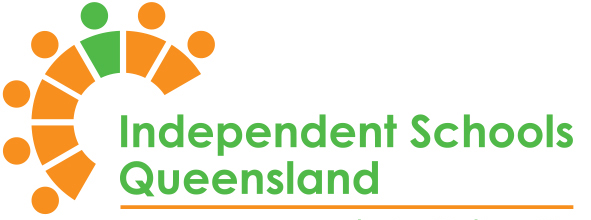In this section
Focus Paper: Neuroscience in Education
Independent Schools Queensland (ISQ) hosted the Neuroscience in Education Online Conference over the course of four days in Term 3. It provided the 550 attendees with stimulating, innovative and research-based professional learning, from Australian and international presenters. The thought-provoking and engaging sessions covered a range of neuroscience research, addressing pressing questions including:
- Does music help or hinder students’ study?
- How can we support students who have suffered trauma?
- What strategies can be used with students with learning disorders?
- What effect do screen time and gaming have on students’ behaviour?
Dr Jared Cooney Horvath
Kicking off on Monday, Dr Jared Cooney Horvath’s dynamic presentation showed us strategies for dealing with memory-making and retention. As always, Jared’s enthusiasm for his field of knowledge and research engrossed the audience and provided practical strategies to apply these academic findings to school and classroom settings to engage, develop and advance students’ ability to think and retain knowledge. Advice on study habits and the pragmatics these have for teachers when advising their students was inspiring and well received.
Professor Jack Naglieri
Prof Jack Naglieri, from Virginia, began with a practical mindfulness activity to ensure participants were ready to learn. While he played his Spanish guitar, attendees relaxed and were ready to engage when he delivered in-depth information from years of research and case studies. Prof Naglieri advised the group about focusing on using student strengths to bridge difficulties in knowledge retention and function. Using his tried and tested PASS theory, he demonstrated how this can be utilised in schools to improve student achievements and outcomes.
Dr Justine Gatt
Dr Justine Gatt from the University of New South Wales delivered the latest information from her ongoing research on how technology can affect the adolescent and teenage brain as well as the different coping strategies young people use. These have been classified into approach-oriented coping strategies (such as active problem-solving or finding emotional support) and avoidance-oriented coping strategies (such as self-distraction, substance use or excessive eating).
Dr Gatt also provided invaluable advice on topics such as: what to watch for to make sure your child’s time online is not having a negative impact on their wellbeing and finding the balance regarding screen time to ensure optimal health and wellbeing.
More information: www.esafety.gov.au | www.Neura.edu.au
Nathan Wallis
The conference concluded with an informative session with Nathan Wallis, a leading Neuroscience educator. Nathan gave information on brain development, including the first 1000 days and how crucial this development is to later learning. If children feel secure and loved with positive interactions, the more developed their brain will be, which impacts their long-term outcomes.
Alongside this important message on how our well-being impacts our ability to learn, Nathan also covered the importance that creativity plays in engaging learners. Intelligence is largely underpinned by problem-solving which, in turn, is largely reliant on creativity. This is why play-based learning throughout the early years of education is important in contrast to the formal learning of letters and numbers.
More information: www.nathanwallis.com
Reflections
The ISQ Neuroscience in Education online conference was deemed hugely successful by participants, largely because of the attendees’ ability to engage with leading professionals from Australia and overseas. The range of topics and level of research presented coupled with practical strategies meant educators could implement some immediately or ponder further investigation for future classroom and school applications.
ISQ has developed a Cognitive Science Short Course for 2022, with a half-day webinar event open to all member schools. Details will be detailed in the ISQ 2022 Professional Learning Prospectus.
Revival of Storytime Arrangement
The Australian Publishers Association (APA), the Australian Society of Authors (ASA) and the National Copyright Unit (NCU) for Australian schools are pleased to announce an update regarding school storytimes to ensure that teachers (including teacher librarians) are able to read stories to students in a virtual classroom environment.
It is the policy of the APA and the ASA that its members allow schools whose students are affected by government 'stay-at-home' orders to read Australian children’s books online to students and families without any need for specific permission or payment, as follows:
1. Teachers are encouraged to live stream Storytime wherever possible (such as via Google Classroom, a Zoom call or Facebook live streaming). If a school has the technical capacity to do so, teachers are encouraged to limit access to the live stream to students of the school and their families.
2. If live streaming is not practical, a teacher may make available a recording of Storytime online, provided that:
a. the recording is “view only” so that no further copies can be made or downloaded. For example, you could film yourself reading a story to children in your class and upload it to your school’s digital learning environment for students to access at home
b. wherever possible that recording should be made available using password-protected access in a digital teaching environment, rather than made available generally on the internet. For example, if you can give students access to the recording via a platform such as Google Classroom instead of Facebook, you should do so.
3. Teachers must provide bibliographic details of the featured book at the beginning of any published recording of Storytime, including the title, author, illustrator and publisher.
4. This policy is temporary and applies to any primary or secondary school required to provide remote learning for students due to the COVID-19 emergency. Recordings can only be used during the period of the lockdown and:
a. access to the recording by students/parents must be disabled within a month of that school resuming normal teaching practices
b. the recording must be deleted by the school 12 months after it was made.
Teachers are encouraged to continue to read Australian stories to students under these Storytime arrangements and to support Australian creators whose incomes from events has declined during the pandemic.
